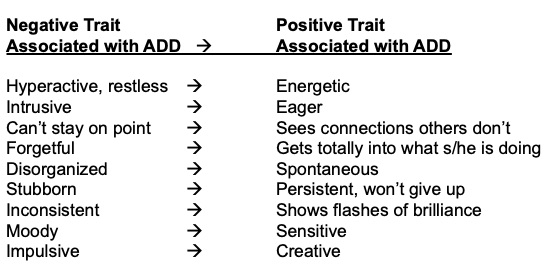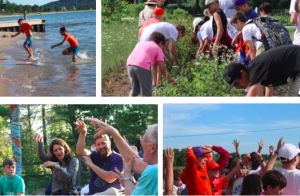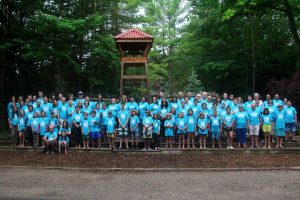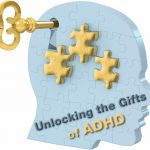Since the last time I wrote to you all in this space, three events have dominated the news: Trump’s impeachment and trial; Kobe Bryant’s sudden death, along with his daughter and seven others; and the coronavirus outbreak. One question that trio of events brings to my mind is: how do we do it? How do we cope with life? How do we manage, when each day holds the possibility of more terrible news.
Imagine, first, the impeachment and trial of our President. That alone could bring us all to the edge, regardless of our political leanings. We’ve gotta wonder, what is happening to our country?
Then, one of the superstars in our sports world if not the world in general, a man millions of children and adults looked up to, admired, took hope from, and felt immense pride in having seen or cheered, suddenly dies in a helicopter accident along with his daughter and friends. That stunned us, as it hit the news on a Sunday afternoon. It came so totally out of nowhere, a Nowhere we all fear whenever we stop and think. After all, Nowhere could hit us any day.
Gathering momentum all the while was the news of a new deadly virus, which is dangerously easy to spread, coming to life in China and beginning its dissemination, infecting and possibly killing who knows how many, in how many ways, in how many countries, and for how long. Panicked, millions of people even in the United States bought masks, while greedy opportunists stockpiled them.
And these are just the stories we all know of, national and international news, enormously distressing events we try to piece together each in our own ways, but also as a national and international community. Add to them the private stories each of us lives with; or the local stories on:
- family tragedies and miseries;
- the house down the street where we know something terrible is amiss but we don’t know how to help or if even help would be welcomed;
- or the people who are in the ambulance whose siren is screaming outside right now, or will be soon;
- there’s a mother who lost her teenage son to an accidental overdose,
- a wife who lost her beloved husband way too soon to a heart attack while he was out jogging,
- and the homeless woman who’s just trying to find food while preserving some shred of dignity.
Samuel Johnson wrote, “We live in a world that is bursting with sin and sorrow.” He also wrote “Life is everywhere a state in which there is much to be endured and little to be enjoyed.”
Enough. I know. Of course, I don’t mean to be a total downer. I know, I know. We all need to look on the bright side, because, for sure, there is a bright side if we look hard enough.
But I do wonder, how do we manage?
Life keeps going on, the regular radio shows talk to us while we commute, the regular TV shows entertain us after dinner, we have our routines that propel us from get-up to go-to-sleep, and we find a way not to slip into too dark of a place.
Still, how do we do it? Selective denial? Jack Daniels? The right diversion? Prayer, meditation, travel, and the gym?
Those of you who read this column know by now where I am headed. You know I tout one solution over all others. And it is a solution we need now more than ever.
The Solution We Need Now
It is the solution that’s found in one another. And the solution found in connection. It’s also the solution whose essence is love, but whose ordinary existence is “How’s by you?” It’s free, connection is; it’s infinite in supply; and yet you’d think it was rare as spun gold as seldom as people turn to it.
Now more than ever. Reach out. Try, try, try not to judge one another. Try, try, try to move past the angry thought and roost instead in a place of forgiveness, humility, forbearance, and joy.
And roost with others. Invite over a friend. Make a lunch date with that person you haven’t seen. Speak well of someone for no reason other than you like that person.
When the News Is Bad
When the news is bad—and every day has always had bad news; Samuel Johnson, after all, lived in the 1700’s and look how bad he saw things to be, so we’re no worse off than people have always been—remember that you—we—do have each other.
We do, we really do, have someone we can go out and rag on life with; someone we can grab a beer with or maybe go dancing; someone who makes us laugh, even when skies are gray.
And we have dogs. For heaven’s sake, get a dog. And every day, do what I do and make a little gratitude list, if you don’t think it’s too hokey. And don’t think it’s too hokey. Don’t be one of those people Samuel Johnson said were “too refined ever to be pleased.” (Yes, I do have a thing for Samuel Johnson. More on that if you’d like in another column; just let me know.)
So when hope seems hard to come by, and you can’t figure out the why’s of all the bad stuff that happens, let alone the how-to-deal-with-its, just remember you have me and I have you and together—yes, world, together—we can keep each other on this side of despair.
Better yet, we can pave brand new paths toward joy.

 It’s like none other. It provides families with a fascinating week of learning, connecting, adventuring, reflecting and community-building. All members of the family are invited. Camp is suitable for siblings who do not have ADHD too.
It’s like none other. It provides families with a fascinating week of learning, connecting, adventuring, reflecting and community-building. All members of the family are invited. Camp is suitable for siblings who do not have ADHD too.







